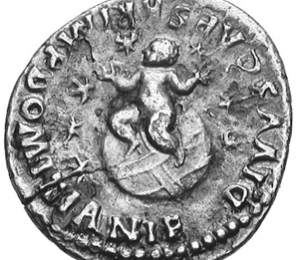
In the previous post, we discussed the need to intentionally evaluate our balance and to make adjustments for sustainability along the way. (If you have not yet read that post, I’d encourage you to read it before reading this post.)
- Who do I fear?
- How is my tempo?
- How is my courage?
- How is my spiritual discipline?
In this post, we continue with six more assessment questions.
5. Am I coming apart?
We need to adjust the rhythm of our lives. We can’t constantly march to “Onward Christian Soldiers”; occasionally we need to adjust to reflect on “Amazing Grace.”
Jesus told His disciples as much: “And he said unto them, Come ye yourselves apart into a desert place, and rest a while: for there were many coming and going, and they had no leisure so much as to eat.” (Mark 6:31).
This is something I’ve had to learn and still have to work to practice. Part of what makes coming apart difficult is that, even as in Mark 6 when Jesus called His disciples apart, sometimes planned rest gets cancelled for ministry needs. That is simply the nature of ministry. It’s never as easy as it looks on paper, and time apart requires sensitivity to the Holy Spirit as well as a willingness to be flexible.
That said, it’s not impossible to come apart, and these three questions will help you evaluate how well you’re doing it:
- Do I schedule time away? Yes, sometimes scheduled time away will be interrupted or canceled, but it will never happen if you don’t plan it.
- Do I have replenishing friends? You need to develop relationships with people who encourage you spiritually.
- Do I have a managed pace of life? Individual days will derail, but overall, do you live in a state of emergency or purpose?
6. What should I share?
One of the traits of healthy leaders is their willingness to delegate. They don’t feel defined by what they do; thus they are able to release what they should not do and find joy in training others to succeed in those responsibilities.
The textbook example of this is in Acts 6 when the apostles chose the first deacons. The thought process was that there was a need, the apostles knew they should not take their time from other responsibilities to meet that need, so they delegated the need to other qualified servants.
Spiritual leaders must be willing to delegate. But they must do it with wisdom (giving spiritual responsibilities to spiritual people) and with a 2 Timothy 2:2 heart of training and mentoring others.
7. Am I getting sidetracked?
There is always time for the will of God. But sometimes doing the will of God requires resisting our tendency to get sidetracked.
Sidetracking can take place so deceptively in our hearts. It can begin with something as wise as developing a hobby, but then turn into that hobby consuming us. What was once a healthy diversion becomes a pursuit of empty excellence.
We can also get sidetracked by hurts or unjust situations so that we take our focus off Christ and are now dialed in on the sins of others.
Resist the natural tendency to shift focus. Insist on “looking unto Jesus” (Hebrews 12:2).
8. Have I repented of known sin?
How often do you invite the Holy Spirit to thoroughly search your heart? Christians with a passionate heart for God do this regularly. “Search me, O God, and know my heart: try me, and know my thoughts:And see if there be any wicked way in me, and lead me in the way everlasting” (Psalm 139:23–24).
Spiritual Christians are not sinless Christians; they are sensitive to the conviction of the Holy Spirit. Thus, they ask Him to search their hearts and their thoughts for the kinds of sins that are easily hidden by the deceitfulness of the human heart.
9. Am I a giver?
Our giving is really a gauge of our heart. Jesus told us that it is an indicator of where our heart is: “For where your treasure is, there will your heart be also” (Matthew 6:21).
Our giving also reveals the grace of God in our lives. Giving is a grace that allows us to exercise faith. Paul challenged the church at Corinth, “Therefore, as ye abound in every thing, in faith, and utterance, and knowledge, and in all diligence, and in your love to us, see that ye abound in this grace also” (2 Corinthians 8:7).
A grace-filled giver is a blessed Christian. “And remember the words of the Lord Jesus, how he said, It is more blessed to give than to receive” (Acts 20:35).
10. Am I a forgiver?
It is impossible to walk as a balanced spiritual leader while carrying a grudge.
It is incredible to me to see the amount of friction between servants of God that goes in direct opposition to Corinthians 3:13, “Forbearing one another, and forgiving one another, if any man have a quarrel against any: even as Christ forgave you, so also do ye.”
We’re proud enough to reframe our “quarrels” as “issues.” But we’re not humble enough to see them for the petty differences they are and simply forgive.
Forgivers travel light. If you want to walk as a balanced leader, you will have to show God’s grace to others.
What God has given me is sustainable.
As you ask these diagnostic questions we’ve looked at, remember that what God has given you is sustainable. We will never escape stress this side of Heaven—and that shouldn’t be our goal. But we do want to remain replenished by the grace of God to fulfill the roles He has given to us.




